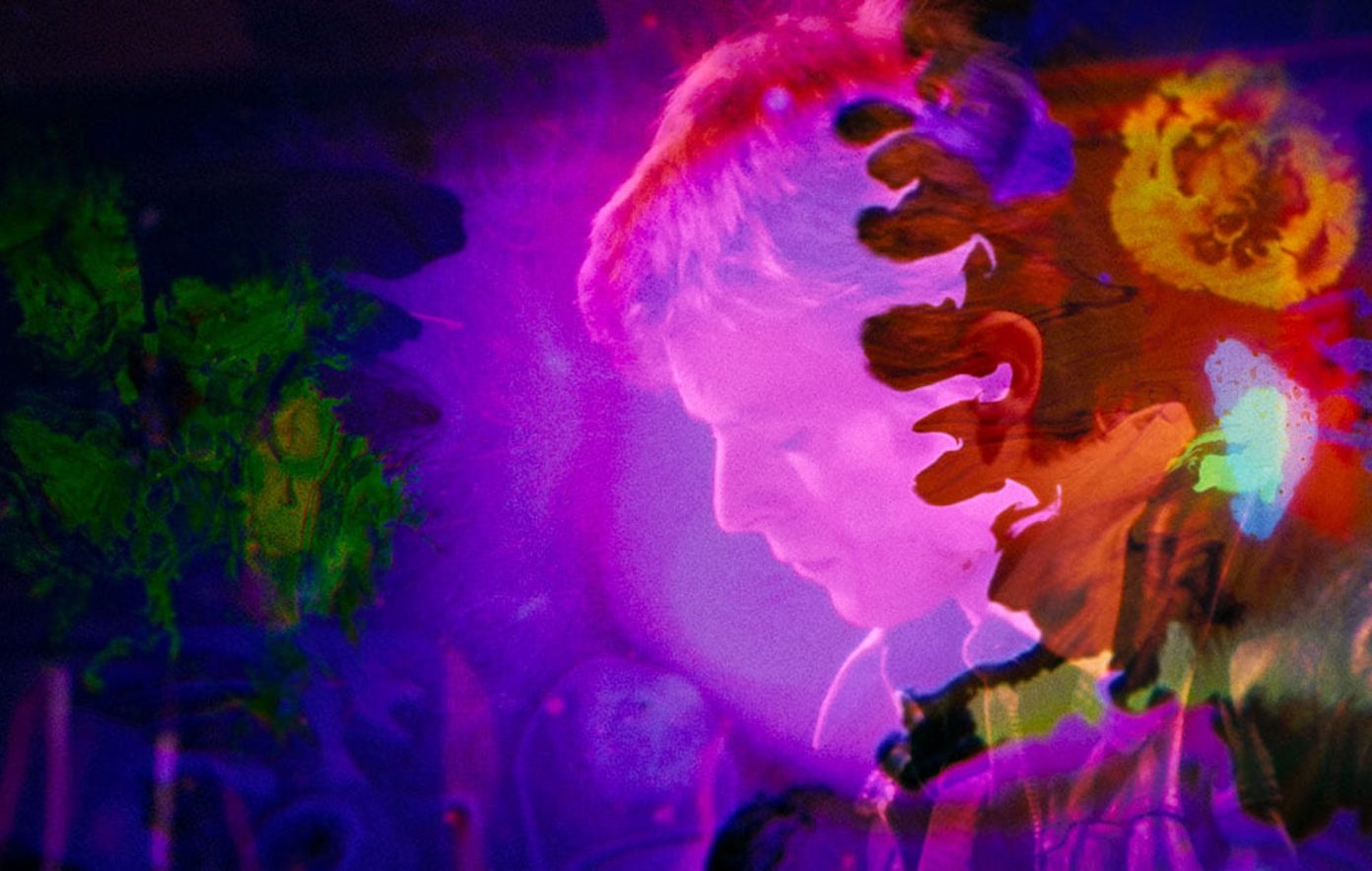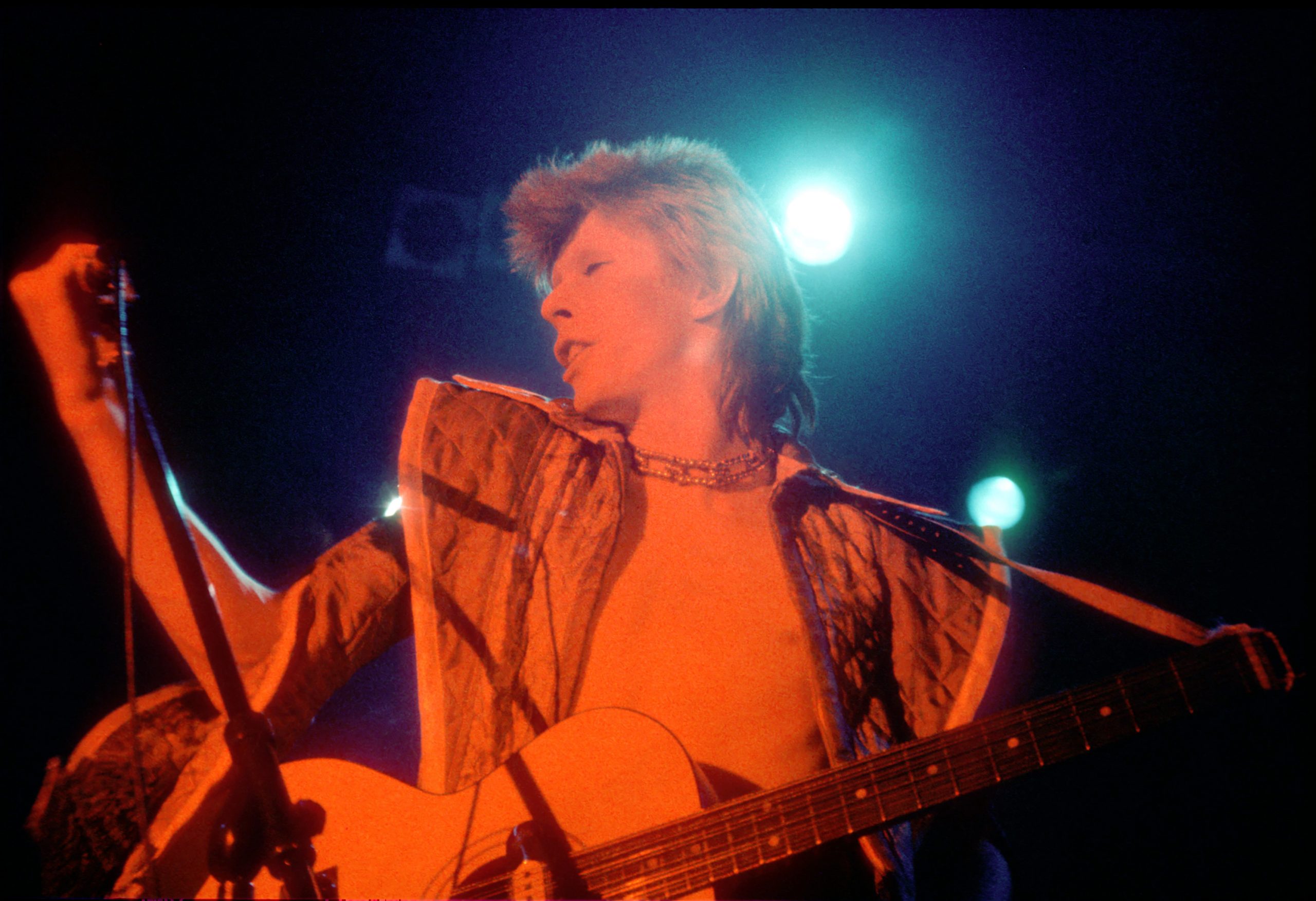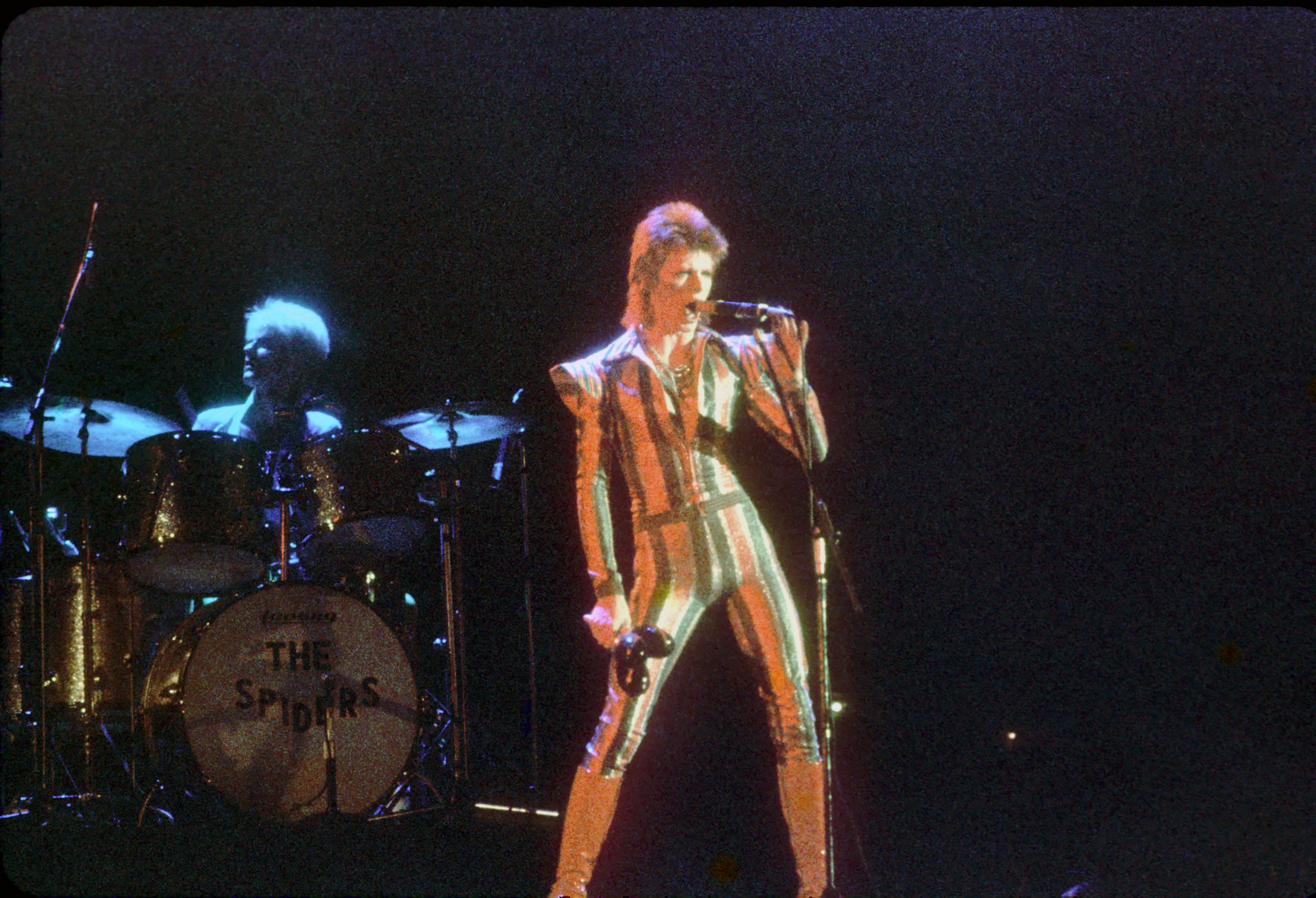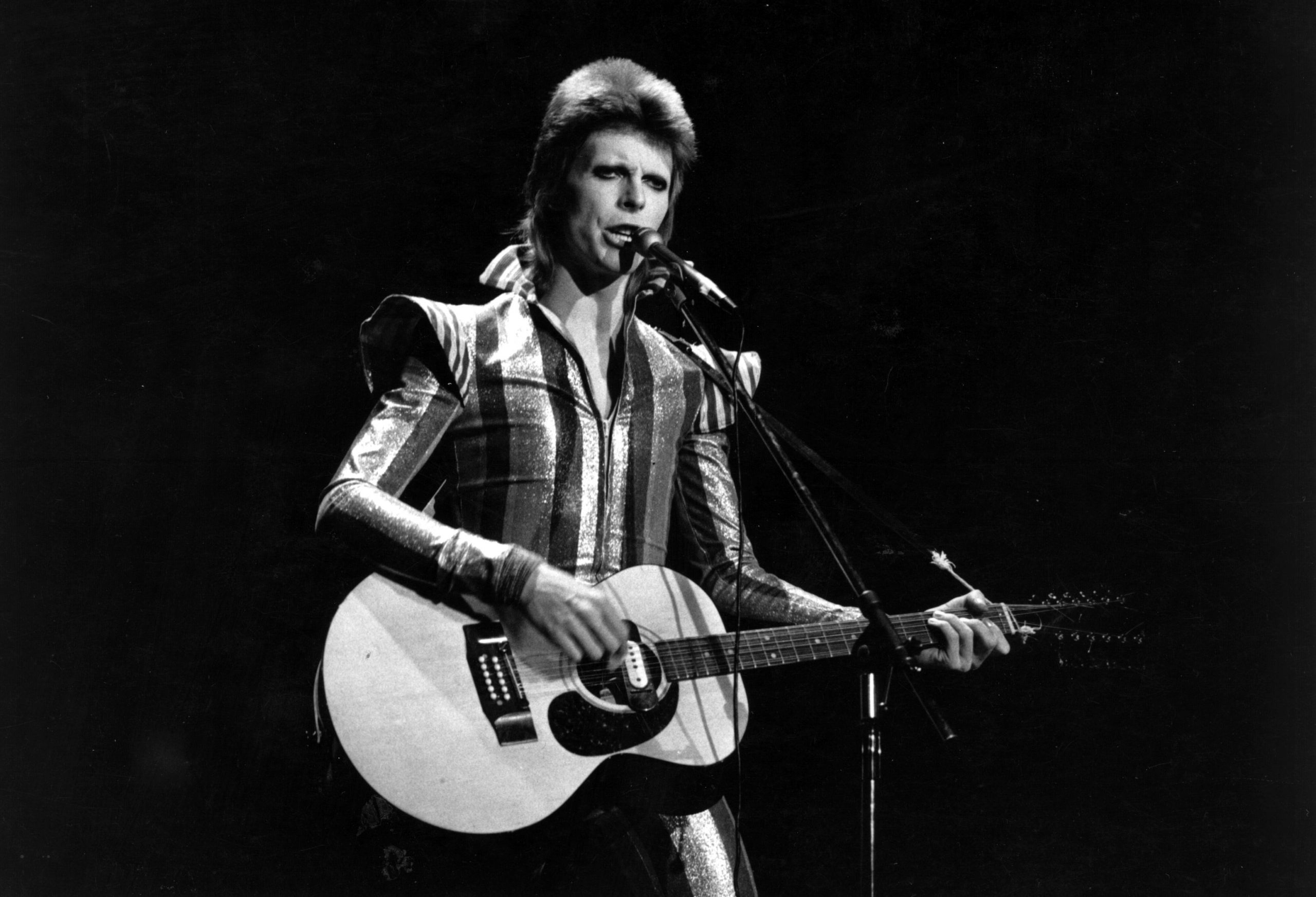
★★★★★
The answer, at least from this film, lies not in relaying the linear, factual history of its subject, but in enunciating the clear artistic (sound and) vision Bowie had. True to its title – a reference of course to one of Bowie’s tracks – the film plays on the astrological themes so present throughout his work. ‘Ziggy Stardust’. ‘Space Oddity’. ‘Starman’. His work was stellar in more ways than one.
‘Hello Spaceboy’ is in fact one of the first tracks we’re hit with, as images of planets and a skeleton (presumably representative of Bowie’s own) float amid the constellations. Such animations from Stefan Nadelman make for striking additions.
The real cinematic work at play in this film, however, are the reams of archival footage, which has been whittled-down from thousands of hours by Morgen, and was approved by the Bowie estate for the first time in a project of this kind.

Photo: Michael Ochs Archives

Photo: Michael Ochs Archives
We see gigs from Bowie’s Ziggy Stardust years, as his beautiful, androgynous image flails and parades itself onstage – and we feel as captivated now as they were at the time. I say that: in truth, Bowie, as the old cliché goes, was well-ahead of his time; his pioneering performances were one of the first rock n’ roll means of transcendence in an otherwise drab ‘70s. Bowie didn’t just refer to the heavens in his music, he seemed to offer a way to get there.
This film places emphasis on the fact that much of Bowie’s otherworldliness derived from an inner philosophy. Indeed, the film begins with one of his quotes on Nietzsche – that “God is dead” so we must create him; an ideological, Übermenschian springboard that would be the source of his creations.
As Bowie recalls in one of the many archival interviews shown in the film, “We were creating the twentieth century; everything is rubbish, and all rubbish is wonderful”. In such a way, Moonage Daydream uncovers Bowie’s ability to make something from nothing; and, like a daydream, create the mirage of the 20th century rockstar; make himself a vessel for people to thrust their own desires for something more upon him. “The artist doesn’t exist,” he says, in another humdinger of a quote.
Granted, Morgen’s fragmentary approach has its drawbacks. There’s no Angie, and the heavy drug-taking (supposedly) of the Thin White Duke Years is implied – albeit through a great interview in the back of a car, driving through the arid land of Los Angeles, so reminiscent of Jack Kerouac’s On the Road that Bowie says inspired him so much.

Photo: Express

Photo: Steve Morley
There is the story of love through Iman, however; and an interesting question of how much Bowie, as an artist, could give of himself to such a relationship. And there’s a slight appraisal as to whether Bowie innovated much further into the 80s. There’s also some detail given of Bowie’s relationship with his half-brother Terry (who lent him a copy of Kerouac’s classic), and the absence of one with his mother.
But overall this just isn’t the sort of film that offers detailed, factual accounts. And for an artist as mercurial and shapeshifting as Bowie, it works.
Morgen has done big, life-changing personalities before – telling the story of Kurt Cobain in Montage of Heck, for instance – but this film strikes an altogether different chord. And Morgen pulls off the ekphrastic task at hand beautifully, using one artform to depict another – a practice Bowie exercised himself through his own paintings, even if he was painfully shy of showcasing them.
We see Bowie untethered, walking like an intrepid explorer through remote Asian villages, explaining why he never wanted to buy a house and was in search of “the common factor” among people. He was fearless and reminds us that the best people are.

Photo: Jo Hale
And as the nation mourns the death of one recent icon, we can look to another and this film to offer some reflective solace. “It’s what you do in life that’s important,” Bowie says. “Not how much time you have.”
When Bowie died, at least in my experience, he seemed more alive than ever – not least because he left us with the Blackstar album as his heart-rending, parting gift to the world. But because he lives on, through his music and art. This film pays homage to that. To that spaceboy, that starman, that space oddity, dancing out in space, forevermore.
Moonage Daydream is in IMAX from 16 September and in cinemas from 23 September.



